The Setup …
I don’t know about you, but I'm so over the anxiety and depression related to negative news surrounding COVID-19. By now, if you don’t know what’s going on and what actions you should take to mitigate this disaster, then quite frankly, you're either living a blissful life of solitude on an island (I want to join you) or there's no hope for you.
I actually had a call on my university phone yesterday from a news organization asking if plants can transmit COVID-19. After replying no, I wanted to jump from a very high place to save the mental anguish yet to come.
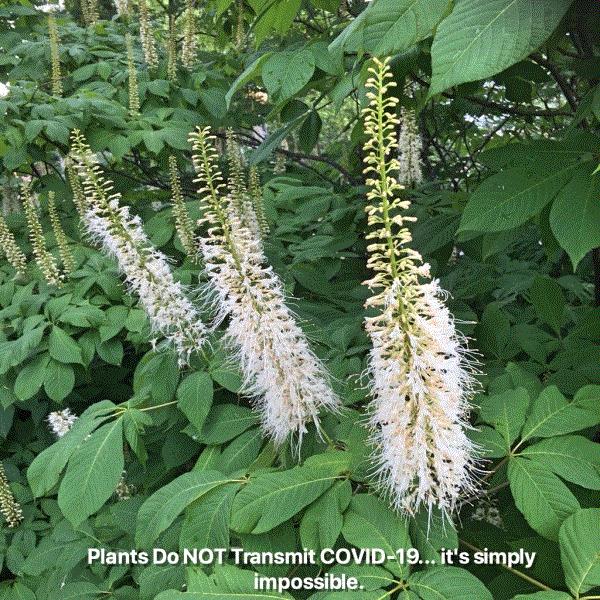
I can't believe I had to make this meme ...
One thing is for sure—many citizens of Earth now have a lot of time to do things that they never did before. Like … gardening! So let’s do some promoting of the Green Industry. This involves every reader … your voice matters.
But First—Two Corrections
Like most university professors (and only children), I usually ignore people who tell me I'm wrong. I’m kidding—I don’t try to ignore my wife. And I certainly don’t ignore you—the readers—because we’re in this together. So here are the two issues that have arisen recently:
Stephanie (from Collegeville, Pennsylvania) and a few others wrote to speak up about the cold hardiness of Arp Rosemary, which was featured in the last newsletter. I'd indicated it was Zone 6 cold hardy, based on my personal experience gardening in the Appalachian Mountains (in Zone 6). However, apparently for many readers, it's in fact not Zone 6 cold hardy. (Further proof to take what I say with a grain of salt.) But I'd like to hear from anyone else successfully growing any rosemary cultivar in the great wild north!
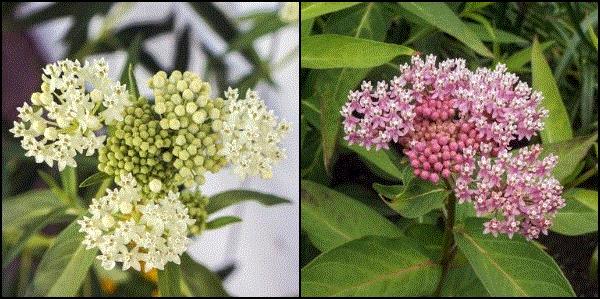
Asclepias Ice Ballet (left) and Cinderella (right).
Sharon from Midwest Groundcovers didn’t cut me any slack when correcting me on a very important point about swamp milkweed (Asclepias incarnata). You see, I said there weren’t any cultivars, when in fact there are two that Sharon wanted to bring to my (and your) attention: the first is Ice Ballet and the second is Cinderella. Midwest Groundcovers carries both, as do a number of folks like North Creek and American Meadows (among others). Oh, and BTW—swamp milkweed is one of the fragrant species, so there’s another reason to grab one.

Promoting the Green Industry
Garden centers and landscape contractors are what makes the Green Industry tick, and without them, we’re all in quite the pickle. Couple that with the flurry of localities that are currently enacting lengthy "shelter-in-place" ordinances and you can see where that could lead. However, we as an industry have an ace in the hole, which is the fact that these community-based regulations have exemptions for "essential industries" in these ordinances.
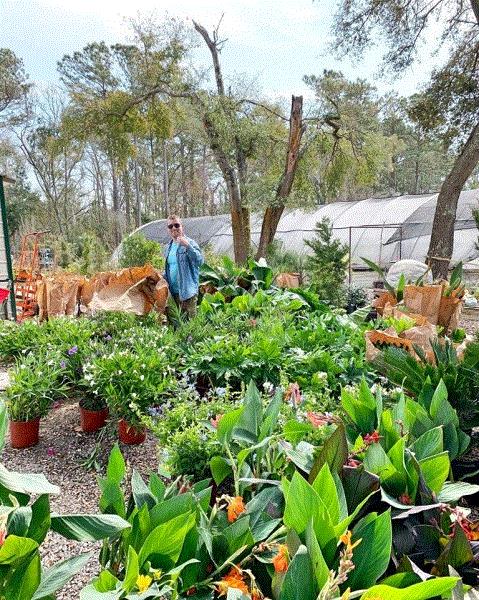
The resilency of some Green Industry businesses is remarkable, like Carolina Home & Garden in Newport, North Carolina, that has (literally) weathered hurricanes and is now facing down uncertiantly never before experienced.
Why not use this to our advantage? After all, quite a bit of what landscape contractors do could be considered essential. Consider tree removal, maintenance of parks and recreational facilities, snow removal (yes, it’s still snowing somewhere), etc. Couple that with growers who are the supply chain for landscape contractors and retail garden centers, and you could make a good argument that both should be exempt. Not to mention that many growers produce herbs, spices, medicinal plants and food crops (especially in spring) that are sold to local garden centers and big box hardware stores (which are still open for business). Given these facts, you can make a strong argument for Green Industry businesses being exempt from shelter-in-place ordinances.
The key is being preemptive in contacting local and state elected officials. At the current time (at least in the U.S.), contacting federal leaders is pointless because it seems the federal government is pushing decision making to local and state governments.

How Do You Develop a Message?
Good question. It’s also one that Danny Summers (Managing Director & Chief Instigator at The Garden Center Group), Craig Regelbrugge (AmericanHort) and other industry leaders have worked hard to craft into a message you can use. Below is a draft letter, which you could use with slight modifications to fill in the nouns (your organization, business, etc.). This could be delivered directly to county commissioners, mayors, city councils or state representatives (especially those serving on agriculture committees).
------
Dear Madam and/or Sir,
As our nation, communities and businesses react to the spread of COVID-19, [ORGANIZATION] commends the efforts of local, state and federal governments to mitigate the impact and strive to keep the public safe and healthy.
The discussion of how to best ensure the public health has included the possibility of asking “non-essential” retail operations to shut their doors for a period of time, with the intent of minimizing exposure to the virus.
[ORGANIZATION] is fully in support of sensible steps public health officials may deem necessary to combat COVID-19. At the same, we urge public officials at all levels of government to consider garden retailers among those retail operations determined to be “essential” and allow these business owners the option to stay open as a public service.
Consumer horticulture contributes $346 billion to the U.S. economy and creates more than 2 million jobs. But the story doesn't end there. Horticulture benefits the health and happiness of every citizen and every community in the U.S.
Americans are resilient and resourceful in the face of adversity provided the opportunity to produce their own food and manage any shortage in the supply chain. Millions of Americans engage in food production at home, and more are sure to follow as the COVID-19 crisis unfolds.
With thousands of garden retailers serving communities across North America, these stores provide much-needed services. Whether helping Americans produce home-grown fruits and vegetables, as Americans did during WWII as Victory Gardens, as a mental and physical health relief or providing wholesome activities for children, garden centers offer products and support that individuals and communities can utilize during these stressful times.
Many of the products carried by garden retailers are agricultural, like seeds and edible plants. Others are necessary tools and supplies. Together they are essential to maintaining a healthy living environment. In many communities, the garden retailer may be the only outlet where consumers have access to essential supplies for growing, gardening, maintaining or repairing their residences.
It is also important to note that many garden retailers have been cornerstones in their communities for decades, providing essential supplies in past emergency situations, such as hurricanes, floods and fires.
Because of these considerations, [ORGANIZATION] urges local, state and federal policymakers to consider garden retailers among those operations determined to be “essential” retail outlets that can exercise the option to remain open to support their communities during these trying times.
[ORGANIZATION] also urges all business owners to look to guidelines of the CDC and state and local health authorities and to use the utmost care and caution when considering how to proceed with operations.
Sincerely,

Can it Work?
In today’s pessimistic political climate, many ordinary citizens or business owners would think that local and/or state officials won’t listen to you. But, alas—yes, they will. First, they're looking for reasons to keep businesses open and the associated tax revenue flowing. Second, they know that outdoor activities are calming and much safer than indoor activities when it comes to social distancing.
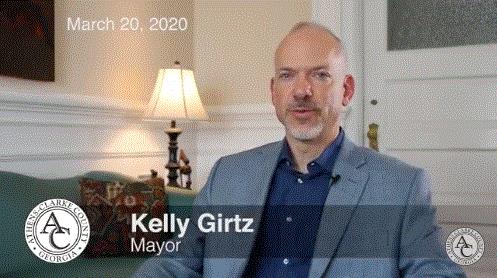
A day after passing a shelter-in-place ordinance, Athens-Clarke County Mayor Kelly Girtz addresses residents, starting off by talking about the peacefulness of being outside during these difficult times. How fitting.
For a case study that has a successful outcome, I don’t have to look too far from where I'm sitting right now (at my home in Georgia, self-quarantined). Thursday morning, the Athens-Clarke County (Georgia) Board of Commissioners released a draft shelter-in-place ordinance that would be voted on in less than 12 hours. Using a slightly altered version of the letter above, Green Industry members were able to convince local officials of the essential nature of our industry with plenty of time to spare. You can see the final Ordinance HERE.
The point of this is to call you to action—each of us can make a tremendous positive difference, but time is of the essence.

But Beyond Politics —Let’s Promote Horticulture
I'm pretty sure each landscape contractor and nursery/garden center has an email list, as well as social media presence (if not, get your butts in gear). So why not start promoting your business, horticulture and the concept of being outdoors today! Here are some thoughts I've had that you can certainly build upon, as I know you're more creative than I am.

In times like these, people have time to get involved in events and things like Monarch Watch directly ties into what the Green Industry offers.
-
Are potential consumers afraid of gardening, but don’t know a good source of information? Then just tell them to do a Google search that includes: “Cooperative Extension” with whatever the question is. For example, “Cooperative Extension—how do I sedate my children while I plant vegetable seed?”
-
Alternatively, partner with university or technical college students (or student organizations) so that they can help your customers be more successful. Most university/technical college students are sitting at home right now and most would love the opportunity to help your customers succeed in gardening!
-
Start a Facebook Live Garden Tour and use your existing clients as test subjects. It’s easy. Sign up for Facebook, then do a Google search for: “How do I do Facebook Live?” and you're off to the races. It really is easy—my 8-year-old daughter taught me how to do it.
-
Interact with potential customers by having a live gardening Q&A session on Facebook Live, Zoom or another online platform. Advertise it locally by partnering with Master Gardeners, garden clubs, the local FFA or 4-H chapters, etc.
-
Use your company website as an educational resource. Create a virtual resource page that has links to university publications, free (but factually correct) videos, customer testimonials, etc.
-
My personal favorite is the "virtual happy hour." I like to use Zoom for this because it allows two-way conversations. However, Zoom is a subscription service, so there is cost involved. Why I really like it is that you can have 300 participants and you can hand off screen sharing/video sharing so people can talk about what’s blooming or otherwise performing well in their gardens. Also, because it's a happy hour, they can also partake of any legal adult substances (in your jurisdiction) that lead to increased conversational abilities. I will say … you'll need a moderator. But it also builds communities, which increases your business.

Don’t Be Afraid
As an educator and Extension Specialist, I want you to understand one thing. New sources of information that your clients find on the Internet don't diminish your usefulness to the consumer. When you provide new sources of information to your clients, you're building trust. Young customers, in particular, don’t need you to be an expert on all things and actually prefer digital resources to inform their purchasing choices. They do, oftentimes, want your opinion after they've extensively researched a topic online. Where you shine and are worth your weight in gold is when it comes to local information. You can win clients by being a local expert, be it about soils, cultivars, insect/disease pressure, etc.
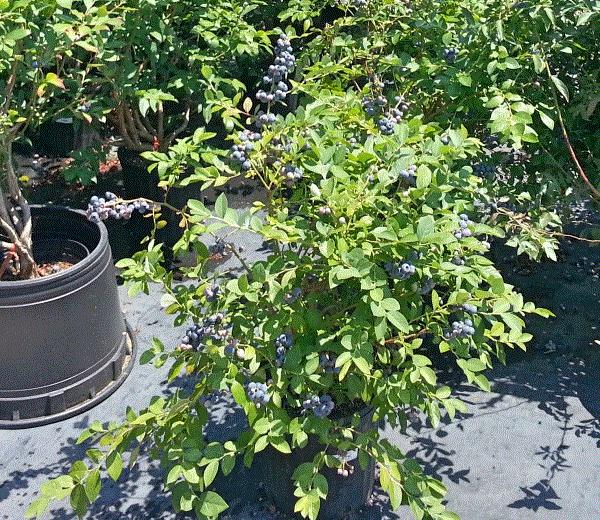
Blueberries are a great example of a crop whereby cultivar selection is very dependent upon location and where you can teach clients about the importance of a multitude of factors, from pollinator health to soil pH.
More importantly, what they need from you (and will happily pay you for) is knowing that the work you do is of high quality. Younger consumers aren't paying for your information as much as paying for a high-quality service and/or product.

Our Wacky Wonderful World—Notes from the Edge of Sanity
Yesterday, I saw my first Monarch butterfly. Today, I saw my first honeybee swarm. The redbuds and magnolias are blooming and the kids are filling up the kiddie pool on the front porch and enjoying the sunshine and 80-degree day. I have all of these opportunities because, for the first time, I've been told to slow down. Pause. Breathe. Enjoy the world around me and my family.

Did I mention that having to learn how to teach Common Core math is cruel and unusual punishment. I much prefer teaching funny faces.
The reason why we’ve been asked to self-quarantine quite frankly sucks. But take the opportunity to reflect, relax and enjoy time you're forced to spend with family. Before long, we’ll all be busier than ever.
Live authentic,

Matthew Chappell
Editor-at-Large
Nursery & Landscape Insider
This has been received by 27,436 of the hardest-working horticulturists in show business!
If you're interested in reaching 27,436 (and growing) clients who eagerly await every Nursery & Landscape Insider and surely read every word, contact Kim Brown ASAP and she'll hook you up.